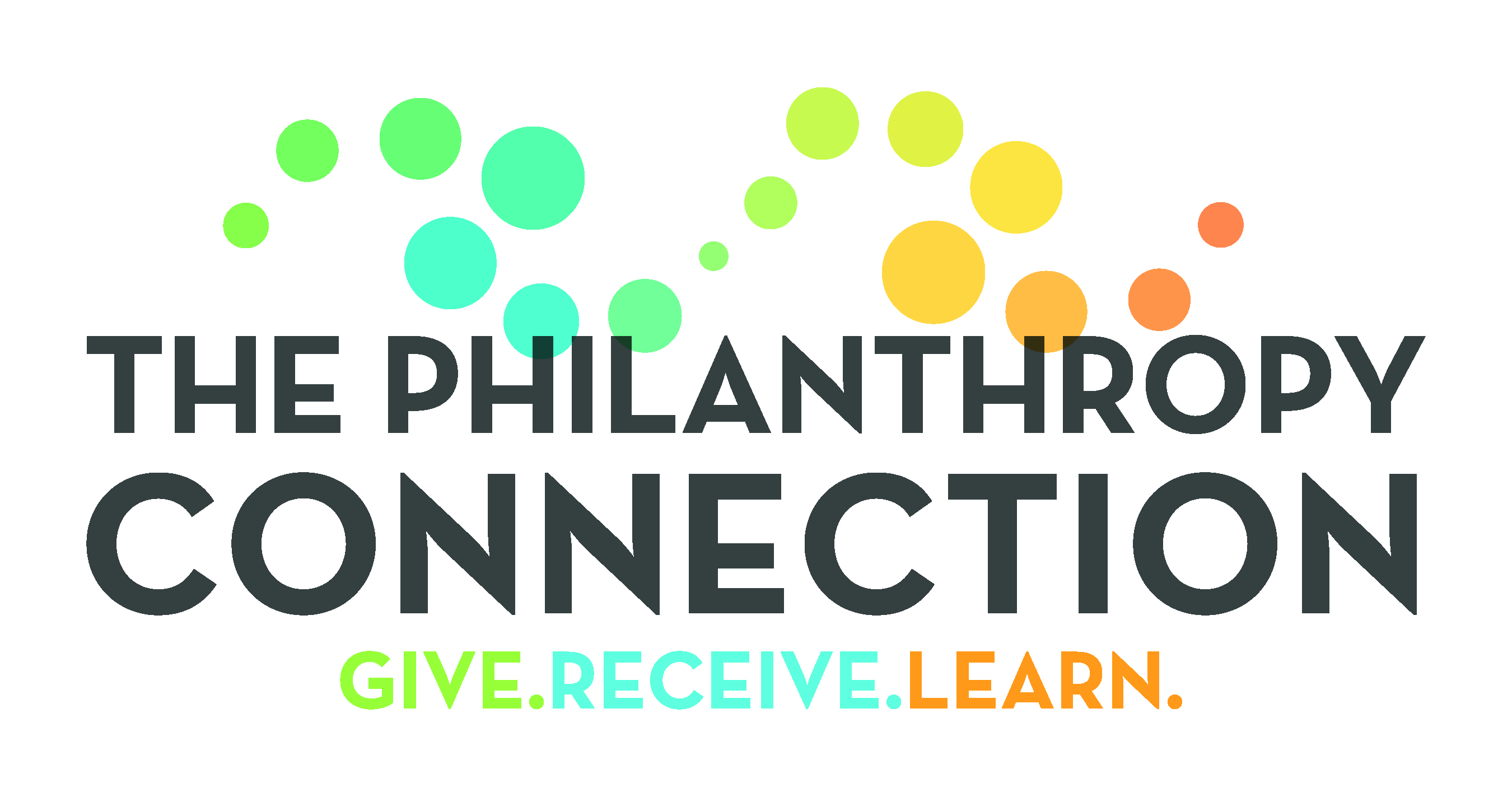The Link
May 2021
It’s Almost Here!
Over the last few months TPC’s Grant Teams worked hard to present a robust ballot for this year’s class of grantees. We know many members found it difficult to select just 10 from the 23 nominees presented. But select we did, and the big reveal will be here before we know it. If you haven’t already, please register for TPC’s Grant Awards & All Member Meeting, which will take place on Thursday, June 3, from 7:00 to 8:00 pm.
This is an excellent event to invite friends or colleagues to join us virtually to learn about our grantees, our mission, and our plans for the future. One of the exciting changes we have just implemented is a new “Membership Investment” structure that expands the levels of TPC membership from two to four, giving members more flexibility in how much they would like to contribute as well as make TPC membership more accessible to those not able to afford our previous entry levels. Our overarching goal is to grow the size of our grant pool by increasing the number of women who become members, which in turn will help us continue to add to a diverse community of women who represent all the communities we serve. We believe offering a wider range of Membership Investment options will help us achieve this goal as well as ensure our sustainability as an organization. There are many more details to follow, but the new Membership Investment levels are:
Friend: $300
Partner: $600
Catalyst: $1,200
Sustainer: $2,500
We encourage you to renew today and think of friends and colleagues you can invite to join us or sponsor for membership!
Upcoming Events
May 24, 6:00 to 7:15 pm. There is still time to register for our final Philanthropy Dialogue of this grantee year. The topic is Housing and the discussion will feature Norieliz DeJesus, Director of Policy and Organizing, from La Colaborativa along with Jesse Kanson-Benanav, Executive Director of Abundant Housing MA who will give us the broader picture of housing accessibility in Massachusetts.
May 26, 1:00 to 1:50 pm. You can still sign up to take in TPC member Susan Benford’s participation on the panel “Start Your Giving Circle’s Endowment and Grow Your Impact” at the We Give Summit. In this session, advice from professionals with extensive experience in growing and managing endowments will give advice aimed at helping those considering starting or strengthening a giving circle’s endowment – something TPC may consider in the future.
June 24, 6:00 to 7:30 pm. TPC’s Book Club will meet to unpack the first three sections of Caste, in which Isabel Wilkerson presents her framework for the hidden caste system that shapes American society. We will gather together initially in virtual space, and then break into small groups with a facilitator assigned to lead each discussion. Register today.

Grantee Impact 1: Dignity Matters
Liaisons: Tref Borden and Sushmita Datari
Dignity Matters is a non-profit organization that collects, purchases, and supplies feminine hygiene products, bras and underwear to women and girls who are homeless or disadvantaged to help them stay healthy, regain self-confidence, and live with basic dignity. Dignity Matters works to distribute feminine hygiene products to organizations such as homeless shelters and food pantries, and community organizations. (Read more…)
Grantee Impact 2: City Life/Vida Urbana
Liaisons: Jennifer Angarita and Penny Weeks
On the morning of May 14, City Life/Vida Urbana (CLVU) hosted a virtual Solidarity Community Update with the topic “CDC Moratorium and COVID Housing Equity.” TPC member and CLVU liaison Penny Weeks attended and notes that it was both very informative and alarming given recent developments in Federal Court that put tens of thousands of MA residents at imminent risk of eviction despite the continued challenges of the pandemic. CLVU has been working hard to support the passage of the critically important (MA) HR 1434 Covid-19 Housing Equity Bill. Mike Leyba, Director of Development for CLVU, provided us with the following resources and invited TPC members to review them. For those interested, a link to the video and slide presentation, which contain some sensitive information, can be requested from Penny Weeks directly.
- WBUR article about RAFT funds can be found here.
- The LinkTree with all the links to articles and action steps can be found here.
DEI Spotlight
Diversity | Equity | Inclusion
Over the past 10 years, the term “intersectionality” has become a buzzword within the social justice movement. Yet, despite its recent popularity, many struggle to articulate its significance and origin. First coined in 1989 by civil rights activist, critical race theorist, and Black feminist legal scholar Professor Kimberly Williams Crenshaw, intersectionality is an analytical framework used to describe the ways in which racial and gender oppression uniquely intersect and negatively impact Black women. Since then, it’s become a framework widely used to highlight the interlocking phenomenon of oppression across different lived experiences, such as ability, race, gender identity and expression, sexuality, religion and so on and so forth. To learn more about its origins, check out this short explanation from the creator herself.
By using an intersectional approach to analyze systemic oppression, we position ourselves to listen more deeply, amplify the voices of those with a particular lived experience(s), recognize the nuances and shared histories/experiences amongst different communities, and begin to engage in coalition building that will guide us toward a collective healing and justice. We hope that you’ll adopt an intersectional approach, as our TPC, local, and global communities continue to work toward the pathways to liberation. If you’re interested in learning more about this framework and the ways that it manifests in our everyday experiences, below are some resources that can help you continue your learning. If you come across a resource that impacts you, we encourage you to pass it on!
- Training 5/26: Beyond Body Positivity: Adding Fatness to Your Intersectional Lens This “Be Nourished” webinar is all about unpacking biases around fatness and providing tools to create more welcoming spaces for all bodies.
- Training 6/3: Understanding Trans and Nonbinary Identities led by the Mass. Transgender Political Coalition to provide an overview of gender identity; discuss the diversity of trans and nonbinary identities and experiences; recognize the struggles trans and nonbinary people face, and how those struggles may impact your work; and review appropriate and compassionate language when interacting with trans and nonbinary people.
- Book: Heavy by Kiese Laymon – in his essays, personal stories combine with piercing intellect to reflect both on the state of American society and on his experiences with abuse, which conjure conflicted feelings of shame, joy, confusion, and humiliation. Laymon invites us to consider the consequences of growing up in a nation wholly obsessed with progress yet wholly disinterested in the messy work of reckoning with where we’ve been. Subjects discussed in the book include but are not limited to addiction, body image (anorexia and obesity), race, and gender.
- Article: This year, Equal Pay Day was recognized on March 24; although there are numerous attempts to narrow the pay gap between men and women, the wage gap across race and gender continues to disproportionately affect BIPOC women. It’s important to note that while this data is useful, it doesn’t take into account other important lived experiences like sexuality, gender identity, and disability, which also impact total earnings.
- Podcast: Disability Visibility Project – the last 16 months of the pandemic has made it increasingly clear that marginalized peoples are often erased, ignored, and negatively impacted in times of disaster and emergency. On Episode 75 of the Disability Visibility Project, Germán Luis Parodi (Co-Executive Director of Partnership for Inclusive Disaster Strategies) and Valerie Novack (Board Chair of the Partnership), talk about the interconnections between pandemics and disaster planning, systemic issues that impact the disability community, and the need for improvements in infrastructure.
As always, if you’d like to further engage in conversations about or take action with us toward addressing racial equity, white supremacy, police brutality, or our personal and philanthropic roles in committing to anti-racism, please contact the DEI Task Force directly at: diversity@

